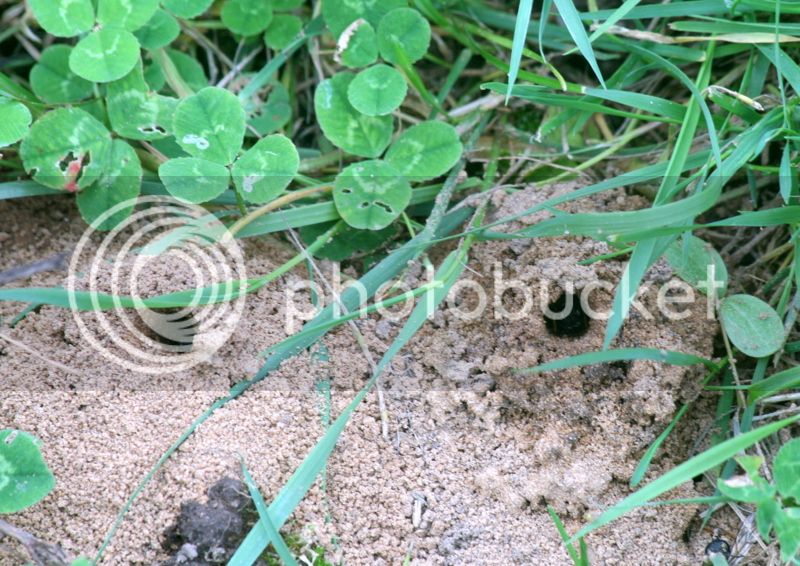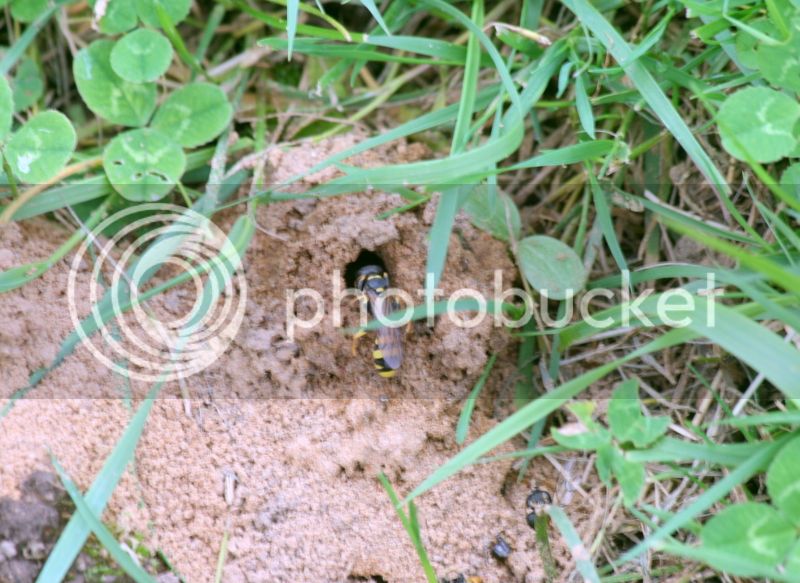- Joined
- Jun 4, 2015
- Messages
- 9,135
- Reaction score
- 15
- Hive Type
- National
- Number of Hives
- 17 nucs....
We have around sixteen of these Wolf wasps that have taken up residence in one of the sandy flower beds, they are not far from the hive should i be worried and destroy them or do they take a bare minimal of honey bees, i have been watching them for several days and they seem to be just burrowing the tunnel out for now.
Thank You.
Steve.


Thank You.
Steve.





















































